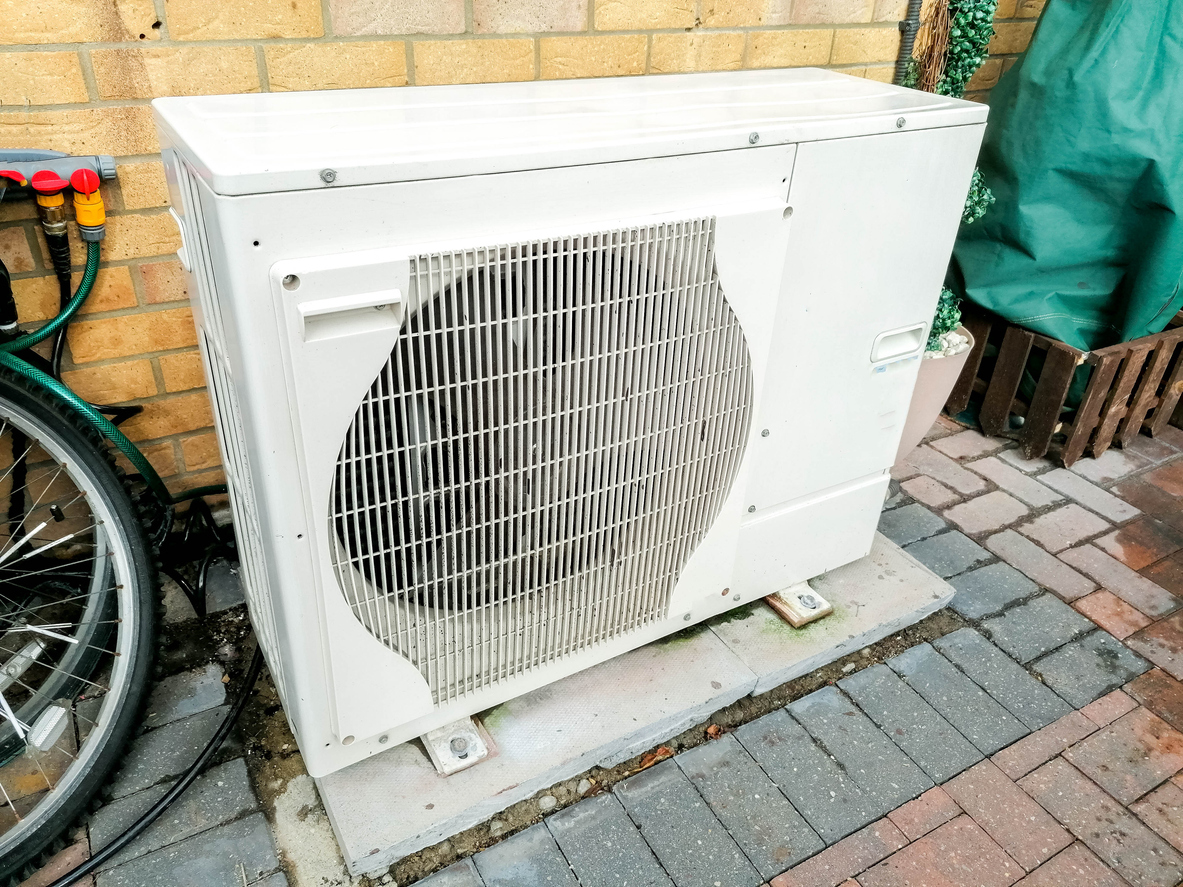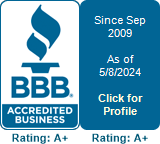Should I Repair Or Replace My Furnace?
Dealing with a malfunctioning heating system is the last thing any homeowner wants, especially when the main thing they want to do is simply enjoy a warm and cozy home. Now, you're faced with a dilemma: do you go for a repair to squeeze out one more winter from your old furnace or shell out cash for a brand-new furnace?
Mersey Heating and Air Conditioning is unraveling this topic in more detail by giving homeowners a detailed guide on how they can tell whether to repair or replace their current furnace equipment. So, if this is something you're dealing with yourself, keep reading for more expert guidance.
Get 24/7/365 on Furnace Services
Since 1974, Mersey Heating and Air Conditioning has proudly partnered with homeowners throughout the Greater Toronto Area, providing quality furnace repairs, maintenance, and installation services that enhance the interior comfort and energy efficiency ratings of our client’s homes.
Our qualified HVAC technicians are available for repairs and maintenance services 24/7/365 days a year. We recognize that your furnace can malfunction at any time of day or night, which is why you won't ever be charged more for using our services on the weekends, holidays, or after hours.
Additionally, if one of our service technicians determines that your furnace is beyond repair, they would gladly set up a time for you to have an at-home consultation with a home comfort advisor.
You'll have the chance to work with a home comfort advisor during your consultation visit, who will assist you in selecting an upgraded heating system according to your requirements and price range for a personalized result you can count on. We'll also provide you with more details about our current promotions and financing choices, which can help you save a ton of money on your next purchase.
Every consultation meeting also comes with a free quote for the purchase of a new system. To make an appointment, give us a call and chat with one of our helpful staff members, or use our secure booking form.
What is the average life of a furnace?
The usual life expectancy of a residential furnace is between 15 and 30 years, although with proper care, many models can last up to 25 years on average. That said, the overall quality of the furnace brand and equipment, upkeep habits, and surrounding conditions, among other factors, can all have an impact on how long it lasts in real life.
Booking a professional maintenance appointment on an ongoing basis is a great practice that will extend its lifespan and improve the efficiency of your furnace equipment in general. Annual expert inspections and tune-ups are a proactive approach to spot any issues before they worsen and require more expensive repairs. During these yearly maintenance sessions, HVAC technicians can fix obsolete parts, clean and inspect essential elements, and enhance the furnace's efficiency rating as a whole.
Furthermore, prompt repairs are also essential at the end of the day. Timely corrections of abnormal sounds, reduced heating effectiveness, or other symptoms of a malfunctioning furnace will prevent further damage and extend the equipment's lifespan. Ignoring red flags like the ones we've just mentioned can lead to premature breakdowns of your heating system, which in the end will cost you more money and the added headache that no one wants to deal with during the middle of winter.
In addition to collaborating with a professional technician throughout the years, homeowners can perform a few simple activities to ensure the proper working of their furnace during their day-to-day activities. This includes regularly replacing or cleaning the air filters, ensuring adequate airflow from your vents, and cleaning the area around the furnace of any debris or other obstructions.
Keep in mind that a well-maintained furnace not only lasts longer but also operates more efficiently, which may ultimately save you each month on your energy expenses. This is why routine maintenance and prompt furnace repairs are essential to maintaining your home's comfort and warmth for years to come, regardless of how old your furnace is or whether you recently installed a new one. This is especially true during those bitterly cold Ontario winters when having a working furnace is vital to your well-being.
How do you know when it's time to replace your furnace?
Deciding when to bid your furnace farewell can be difficult. Not only does it add an additional cost to your finances, but it can also be challenging to know the red flags that suggest your furnace isn't operating as it should. So, how do you know for sure when the heating system in your house isn't working well enough? In actuality, there are numerous indicators that suggest your heater isn't heating your home properly. Below, we'll look more closely at a few of these warning signs:
The age of your heating system
The age of your heating system has a big impact on how dependable and effective it is. As furnaces approach the 15–20-year mark, some parts can begin to wear down, which could lead to more regular malfunctions. Even with regular servicing, the wear and tear of an aging furnace can make it more prone to break down, which reduces the furnace's total effectiveness in heating your home.
Energy efficiency ratings
Older furnaces typically have less favourable efficiency ratings than more recent editions. Due to technological advancements, modern heating systems have increased efficiency, which results in reduced energy consumption and monthly energy bills—more money in your pocket every month. If your heating bills have been consistently rising, it may be time to think about upgrading your old furnace, as it may not be operating as efficiently as it previously did.
Regular maintenance
While all furnaces require monthly maintenance, a consistent pattern of frequent malfunctions and repairs could indicate that a system is nearing its end of usable life. The damage that occurs on the furnace's parts over time can increase repair expenses to an extent where buying a new heating system outright could be a cheaper option than continuing to fix the existing one when issues arise.
Higher-than-average heating costs
Increasing heating costs and an older furnace are frequently the causes of declining efficiency. An older furnace may have more difficulty maintaining the right temperature, which could lead to longer operating cycles and increased energy use. Upgrading to a more recent, energy-efficient model has the potential to reduce the cost of your electricity every month while simultaneously providing more constant and consistent warmth during the winter months.
Your house isn't heated evenly.
When heat is distributed unevenly around your home by a furnace, it could indicate serious problems. The incapacity of old furnaces to keep a consistent temperature may cause specific spaces to feel colder than others. This fluctuating warmth can be a sign that the heat exchanger or blower isn't working as well as it should or is entirely broken, which is costly to repair.
Unusual sounds
Unusual noises produced by your home's furnace, including creaking, squealing, or slamming, may indicate interior mechanical problems. These noises may indicate issues with the furnace's ignition system or worn-out components. Loud noises that fail to subside could tell that the furnace is going to break, even though many situations can be repaired with repairs.
Worries about carbon monoxide leaking
Serious safety issues can arise from a broken heat exchanger in a furnace or from the presence of carbon monoxide. Carbon monoxide is a colourless, odourless gas that is known to be fatal. If your furnace shows signs of a problem that could release carbon monoxide, such as a cracked heat exchanger, you should leave your house right away and contact a professional for an inspection, any needed maintenance, and a replacement as quickly as possible.
Renovations to your home
If you intend to expand on or remodel your home, your current furnace might not be able to handle the increased need for heating. Older furnaces may not heat larger or newly extended areas sufficiently, which can be uncomfortable and raise energy bills. Ensuring that your heating system adapts to the changing needs of your home is made easier with a more effective and powerful furnace.
Features of the new model
In addition to improved energy efficiency, upgrading to a modern model may include features like smart thermostats, zoning systems, and enhanced ventilation control. If you value these additional conveniences that might improve the comfort of your home, it might be time to replace your old furnace.
Ultimately, there are a number of indicators that it could be time to replace the furnace in your house with a new one. Having said that, it is imperative to consult a certified HVAC specialist before deciding. We advise getting in contact with the Mersey Heating and Air Conditioning staff to arrange a meeting for a home comfort advisor consultation. They are able to evaluate the condition of your current furnace, provide expert advice, and help you determine whether repairing or replacing it is the best course of action for your unique needs.
Should I repair or replace my 10-year-old furnace?
Making the difficult decision to replace or repair your home's 10-year-old furnace depends on a number of factors. Below, we'll look more closely at a few of these things to think about:
Expense and frequency of repairs
Evaluate the modifications made to your furnace over the last few years. If, during the course of its 10-year lifespan, your furnace has primarily functioned without issue and only requires simple maintenance, it might be beneficial to explore repairs rather than replacing the entire unit, given the associated costs. If, on the other hand, you're having regular failures or the cost of maintenance is rising, it may be a sign that your furnace is getting close to the end of its expected lifespan.
Energy efficiency ratings
Older furnaces usually use less energy than their more modern counterparts. The ability of modern furnaces to heat your house more efficiently is demonstrated by their greater Annual Fuel Utilization Efficiency (AFUE) ratings. If you want to have a more environmentally friendly furnace and save energy bills, it would be wise to replace your heater with a more energy-efficient one.
Your heating costs
Observe recurring trends in the payments you make for your utilities. Your aging furnace might not be functioning properly if your energy expenses have been rising consistently. Upgrading to an updated model can ultimately save costs beyond the initial investment because it uses less energy.
System performance and your comfort levels
Assess the level of comfort in your home. Uneven heating, unpleasant areas of the house, or fluctuating temperatures could be signs that the heating system isn't working as efficiently as it should. A new furnace can provide more consistent warmth, which can enhance overall comfort.
Ongoing expenses
Calculate the possible long-term costs. Although a repair could appear more cost-effective in the immediate future, you should always take into account your furnace's long-term health, the potential for repeated repairs, and increased energy expenses. While the initial cost of a new furnace may be higher, there may be savings over the long run and improved reliability.
If you’re still unsure how to move forward, we suggest you get a certified HVAC technician to perform a comprehensive inspection of your furnace. They can assess its overall condition, identify any potential issues, and provide an estimate for any necessary repairs. The findings of this analysis will determine whether it is possible to repair the existing furnace.
If my heating bill is going up, should I repair my furnace or replace it?
If your heating bills are increasing even though your home heating habits have not changed, it's possible that your furnace isn't operating as efficiently as it could. So, you can try the following troubleshooting techniques before contacting a repair technician:
· Look for apparent damage: Make sure there are no visible issues with your furnace by checking for visible damage, strange noises, or odd odours.
· Check the filters in the air: Your furnace may use more energy if its air filters are blocked or unclean. This will result in less efficient operation. Check the air filters and replace them as needed.
· Make an appointment for professional maintenance: Scheduling routine professional service is crucial to maintaining the optimal performance of your furnace. A qualified specialist can identify potential issues and ensure that your furnace is operating at its peak efficiency by inspecting, cleaning, and monitoring its parts. Schedule a maintenance appointment with Mersey Heating and Air Conditioning if it has been more than a year since your last visit.
· Consider the age of your furnace: If your furnace is getting older, it may not be quite as effective as more recent models. Older furnaces could also be more susceptible to problems. Occasionally, it could be cheaper to buy a brand-new, energy-efficient heater than to maintain it with costly repairs.
In the end, a variety of criteria, including the age of the unit, the seriousness of the issues, and your long-term heating needs, will determine whether to replace or repair your furnace. It is essential to make an appointment with a repair professional to find out what solutions are available.
What are common furnace malfunctions?
The many components that make up your furnace cooperate to heat your house. And for that reason, if your system is not properly maintained, it may grow more prone to problems. Here's an in-depth examination of a few of the most typical issues that a furnace could encounter:
· Issues with the ignition system: An electronic ignition or a broken pilot light can lead to ignition system issues, which can stop the appliance from heating up or starting altogether.
· Thermostat inaccuracies: Damaged thermostats may lead to problems controlling the temperature, which may result in uneven heating or a complete inability to turn on.
· Dirty filters: An unclean or blocked air filter can obstruct airflow, increasing the effort and decreasing the efficiency of the furnace.
· Problems related to blower motors: The blower motor is responsible for dispersing heated air. There could not be enough air movement or distribution of heat if this component malfunctions.
· Defective limit switch: The limit switch is meant to turn off the heating system when the internal temperature gets too high. There's a chance the machine won't start at all or fail, shutting down early before it has had the opportunity to heat your home.
· Problems with the gas valve: A furnace that is not filled with enough fuel will not ignite to generate heat. The gas valve is the source of this issue.
· Broken heat exchanger: This is a potentially hazardous situation since a broken heat exchanger may produce carbon monoxide. This is a major safety concern that requires immediate attention.
· Issues with the flame sensor: If the flame detection system isn't functioning properly, the furnace may shut off quickly after it begins.
· Leaks in the ducting: Inadequately sealed or leaky ducts can lose heat and reduce the furnace's efficiency as a whole.
· Damage on belts and bearings: Over time, the belts and bearings in the blower component may become worn out, leading to failures and strange noises.
· Electronic problems: The furnace's operation is managed by the control board. Issues can result in a system failure or ineffective cycling.
· Problems with the electronic igniter or pilot light: In furnaces that have one of these components, problems may occur that impede the igniting process from successfully finishing.
Ongoing upkeep and prompt repairs can prevent most of these issues. It is advised that you seek the help of a certified HVAC professional for a thorough examination and any required repairs.
How much does it cost to repair a furnace?
Many factors can affect the cost of furnace repair, so it's critical for homeowners navigating this process to have a thorough awareness of these different variables. Let's take a closer look at some of these factors in more detail below:
· Type of Repair: A significant factor in deciding the cost is the complexity and scope of the repair that is required. The cost of simple fixes, such as changing a thermostat or a malfunctioning sensor, is usually less than that of significant repairs involving important parts like the ignition system, blower motor, or heat exchanger.
· Furnace age and model: Whether your furnace is gas, electric, or oil-fired, it can affect the cost of repairs. The furnace's age is also significant. Older units may require specialized and potentially more expensive replacement parts, and the availability of these components can also affect the final cost.
· Parts availability and cost: The cost of replacement parts for your furnace will depend on its make and model. The cost of repairs can differ based on which parts are more specialist or hard to get compared to others, which may be more readily available and reasonably priced.
· Labour costs: The knowledge and standing of the HVAC specialist doing the repair may have an impact on labour expenses. Although highly qualified individuals may charge more for their services, their experience frequently results in repairs that are safer and more efficient.
· Emergency repairs: In the event of severe weather-related furnace malfunctions, emergency repairs may be required. Emergency services are frequently more expensive than other types of services because of the urgency and need for quick care. Luckily, however, if you book your emergency repair with the team at Mersey Heating and Air Conditioning, you'll never be charged for repair appointments that take place after-hours, on weekends, and on holidays.
Get quotations from multiple reliable HVAC experts to secure a precise quote that is customized to your unique circumstances. Although price is a significant consideration, the quality of replacement parts and services should also be taken into account. Abnormally high estimations could necessitate getting a second opinion, while extremely low estimates might be a sign of poor quality or the use of weaker parts.
Furthermore, homeowners are encouraged to set a high priority on routine maintenance in order to reduce the possibility of significant malfunctions and the consequent need for expensive and time-consuming repairs. Consider buying a new, more energy-efficient heating system if your furnace is nearing the end of its anticipated lifespan or if repairs are becoming necessary and expensive.
What is the most expensive part to replace in a furnace?
While furnace repair costs vary, as we just mentioned, replacing the heat exchanger is typically among the more expensive repairs. The heat exchanger is a vital part of a furnace because it transfers heat from its combustion chamber into the air that circulates around your home. The heat exchange system may develop cracks or other issues over time due to a variety of causes, including rusting, damage from use, or flaws in the equipment design.
The replacement of a heat exchanger is a complicated and drawn-out process that can only be handled by a licensed HVAC specialist. In the end, the price might be high, and if the furnace is old and more components are predicted to break shortly after, it might be more economical in some circumstances to replace the unit as a whole.
The blower motor, igniter, and electronic control module are extra components in a furnace that might be expensive to replace. That said, the cost of spare parts and the overall cost of repair can also be influenced by the brand and kind of furnace.
In general, it's best to speak with a certified HVAC specialist like those at Mersey Heating and Air Conditioning if you're having problems with your furnace. A member of our staff can evaluate the state of your furnace, locate the problematic components, and offer advice on whether replacing or repairing it will save you the most money.
In general, it's best to speak with a certified HVAC specialist like those at Mersey Heating and Air Conditioning if you're having problems with your furnace. A member of our staff can evaluate the state of your furnace, locate the problematic components, and offer advice on whether replacing or repairing it will save you the most money.
Do you believe there is something wrong with the heating system in your home? If so, Mersey Heating and Air Conditioning is here to help! We proudly serve Toronto, East York, Markham, Scarborough, Aurora, Richmond Hill, Thornhill, and the surrounding areas.
Our certified and experienced HVAC technicians are available for all repairs and maintenance services 24/7/365 days a year, including after-hours, weekends, and holidays, at no extra cost to you! Simply book with us over the phone or use our online booking form to have your furnace back up and running optimally for you in no time.






